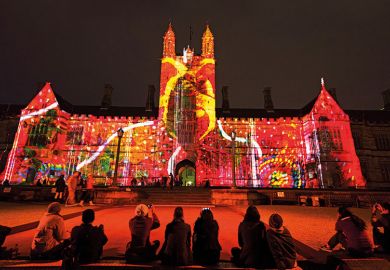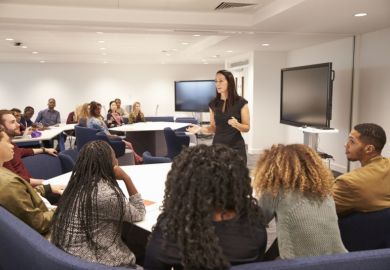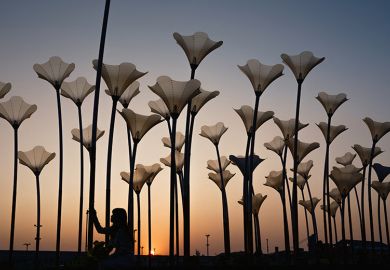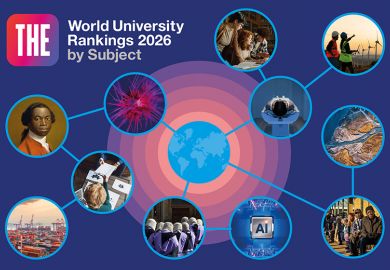Browse the full results of the World University Rankings 2020
Earlier this year, Times Higher Education introduced the University Impact Rankings. This ranking aims to assess universities against the United Nations’ Sustainable Development Goals (SDGs). It was the first global attempt to document evidence of universities’ impact on society, rather than just research and teaching performance.
I’m proud that the University of British Columbia (UBC) placed high in the rankings. We ranked first for SDG 13: climate action; third for SDG 11: sustainable cities and communities; and joint third overall. However, in light of the urgency of the global environmental crisis, none of us can rest on our laurels.
The 17 SDGs were adopted by world leaders in 2015 at a historic UN summit and came into force on 1 January 2016. The goals call for action by all countries – poor, rich and middle-income – to promote prosperity while protecting the planet. They recognise that ending poverty must go hand in hand with strategies that build economic growth and address a range of social needs including education, health, social protection and job opportunities, while tackling climate change and environmental protection. But it’s not just countries that need to address the goals – it’s all of us, including universities.
All the goals are crucial, but in this article, I’d like to focus on four in particular, and how universities can contribute to achieving them.
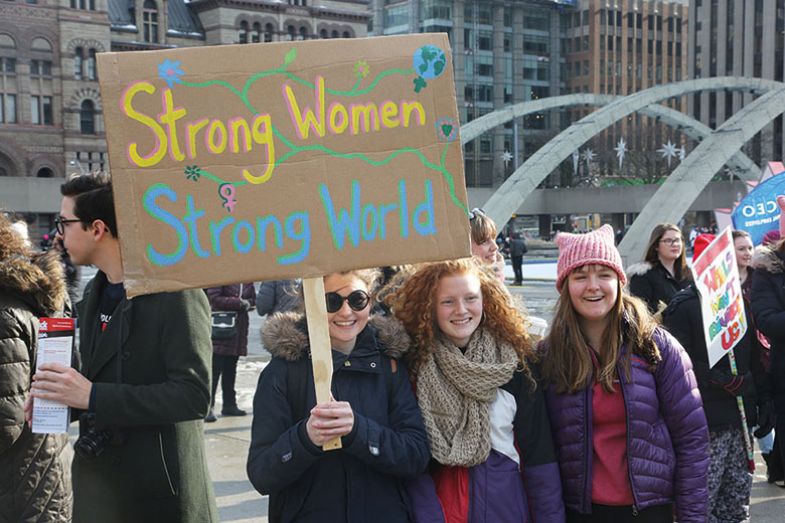
SDG 5: gender equality
As the UN notes, gender equality is not only a fundamental human right but a necessary foundation for a peaceful, prosperous and sustainable world. Providing women and girls with equal access to education, healthcare and decent work, and equal representation in political and economic decision-making processes will fuel sustainable economies and benefit societies and humanity at large.
UBC, like many other universities, is making significant efforts towards achieving gender equality. One area that needs improvement is the STEM disciplines – science, technology, engineering and mathematics. As our dean of applied science, James Olson, notes: “For too long there’s been a stigma around women in STEM and we’re all working hard to eliminate that outdated notion.”
I’m pleased to say that we are making progress; for example, we’ve achieved close to 50 per cent female enrolment in our new school of biomedical engineering. However, despite considerable advances, women represent only 25 per cent of our total engineering enrolment. We still have a long way to go.
SDG 11: sustainable cities and communities
SDG 11 aims to “make cities inclusive, safe, resilient and sustainable”. Universities such as UBC are especially well poised to play a role here, through teaching, through research and through implementation. Not only is UBC an educational and research institution, it is a community, with thousands of people – students, faculty, staff and many others – living at the UBC Vancouver campus. UBC has the opportunity to serve as a beacon of positive change when it comes to smart cities, clean energy and sustainability.
We have seized that opportunity, using the Vancouver campus as a “living lab” for exploring and testing out new environmental, social, economic and technological advances, some of which could be scaled up to move the needle on global sustainability. The campus is an innovation platform, demonstrating what cities around the world need to do. With total control of all the buildings, all the facilities and all the construction, we can do things faster and we have greater ability to take risks.
We’re also collaborating with other institutions. This past summer, 10 UBC undergraduate and graduate students collaborated with 30 peers from Yale-NUS College, the Indian Institute of Technology Madras, the University of Cambridge and Monterrey Institute of Technology on the inaugural Urban Resilience Summer Program in Chennai, India. Together they worked in virtual teams and on the ground, liaising with the city’s chief resilience officer to tackle urgent issues affecting Chennai including the threat of flooding and damage from hurricanes and cyclones, ageing and failing infrastructures, poverty, economic inequality and civil unrest.
The Urban Resilience Summer Program is just one of several UBC-involved cross-institutional initiatives that directly support SDG 11.

SDG 14: life below water
According to SDG 14, we need to conserve and sustainably use the oceans, seas and marine resources. Here again, universities can play a significant role, through research, through education and through advocacy. Marine-protected areas need to be effectively managed and regulations need to be put in place to reduce overfishing, marine pollution and ocean acidification.
Because of our location on the Pacific Ocean, UBC’s students and faculty are acutely aware of the fragility of our oceans, and are in a position to help find ways to protect and strengthen the marine environment.
But we can’t do it alone. The ocean knows no boundaries. That is why UBC partners with other institutions, for example through the Pacific Institute for Climate Solutions (PICS), a research and engagement network of four universities – UBC, the University of Victoria, Simon Fraser University, and the University of Northern British Columbia. PICS supports the co-generation of climate solutions research that can be actively used by decision-makers to develop effective mitigation and adaptation policies and actions in BC and beyond.
We are also working with our partners in the Association of Pacific Rim Universities to try to understand how we can best protect our oceans, and work together on other issues.
SDG 17: partnerships for the goals
As the UN notes, a successful sustainable development agenda requires partnerships between governments, the private sector and civil society. These inclusive partnerships built upon principles and values, a shared vision, and shared goals that place people and the planet at the centre, are needed at the global, regional, national and local level.
Above I have mentioned how UBC has partnered with other institutions as we work on the UN’s SDGs. Alongside these collaborations, we also recently co-hosted the University Climate Change Coalition Summit. This brought together the leaders of top research universities, philanthropists, environment ministers, municipalities, utilities and non-governmental organisations to discuss higher education’s role in limiting global greenhouse gas emissions and associated temperature rises to under 2ºC.
UBC also joined with more than 40 universities to form the U7 Alliance under the patronage of French president Emmanuel Macron – an international alliance of university presidents to discuss commitments that universities may take to address the most pressing global challenges in a multilateral context. The inaugural summit this summer tackled issues including the key role of universities in a global world, climate change and cleaner energy, inequality and polarised societies, technological transformations, and community engagement and impact.
The world’s most pressing sustainability and development issues — as outlined in the UN’s SDGs — can’t be solved by institutions or individuals on their own. We need to work together.
Santa Ono is president and vice-chancellor at the University of British Columbia.
Register to continue
Why register?
- Registration is free and only takes a moment
- Once registered, you can read 3 articles a month
- Sign up for our newsletter
Subscribe
Or subscribe for unlimited access to:
- Unlimited access to news, views, insights & reviews
- Digital editions
- Digital access to THE’s university and college rankings analysis
Already registered or a current subscriber?

